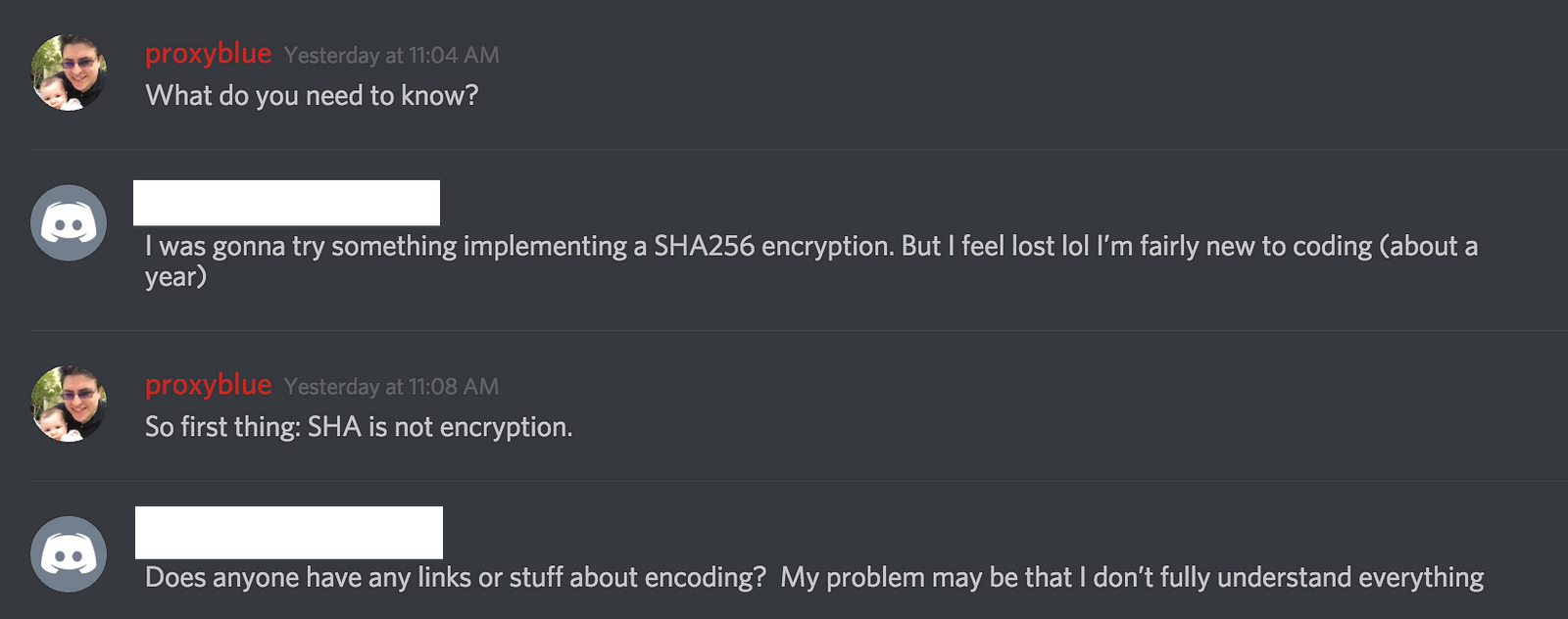Don't Re-use Cipher Key For Mac
- Don't Reuse Cipher Key For Mac Free
- Don't Reuse Cipher Key For Mac Download
- Don't Reuse Cipher Key For Mac Mac
I have Enterprise license through VS subscription. However, the license verification process in VS for Mac failed to authenticate me and update the license. It appears that the license check process doesn't use system proxy setup and failed after the login process, which itself was actually successful. Based on captured traffic, after successful login at login.live.com, the process tries to do a DNS lookup for and then try to directly connect to the IP address returned and thus was blocked by the proxy which forbids direct IP connection. This prevents the license from being refreshed.
Please update the license renew process to connect directly to the desired host by name, which is supported by the proxy as in the case of login.live.com. Hi, is there any update on this? We have the same problem, license verification does not work both on my local MacBook as well as on our MacMini CI environment. We are behind a corporate proxy.
Thank you for your feedback, I'm helping look into what may be going on here. Please accept my apologies for our delay in responding! For us to investigate this further, could you please provide the following logs and information? First, close Visual Studio for Mac.
From a Terminal window, run rm -Rf /.ServiceHub/logs rm -Rf /Library/Logs/VisualStudio launchctl setenv SERVICEHUBTRACELEVEL info Then launch VS for Mac and reproduce your issue. Then, please attach the following:. In the IDE zip up and attach logs by using the Help Open Log Directory menu to (please first clear logs, reproduce issue, then attach resulting logs). In the Finder, choose the Go Go to Folder. Menu and go to the path '/.ServiceHub/logs'. Zip the results and attach them. Copy full version details from Visual Studio About Visual Studio Show Details Copy Information button To attach the files you can add a new comment here, and click the arrow next to 'Viewable by all users' to change it to 'Viewable by moderators' to keep your files private.

Thanks and I look forward to hearing from you! Thank you to the original poster for sharing your log files and working with us in a remote sharing session yesterday! For anyone else tracking this issue, I'd appreciate your help in tracking down other repro cases. Please take the following steps to privately share logs with us, thank you!
Don't Reuse Cipher Key For Mac Free

First, close Visual Studio for Mac. From a Terminal window, runrm -Rf /.ServiceHub/logs rm -Rf /Library/Logs/VisualStudio launchctl setenv SERVICEHUBTRACELEVEL all Then launch VS for Mac and reproduce your issue. Then, please attach the following:. In the IDE zip up and attach logs by using the Help Open Log Directory menu to (please first clear logs, reproduce issue, then attach resulting logs). In the Finder, choose the Go Go to Folder. Menu and go to the path '/.ServiceHub/logs'. Zip the results and attach them.
Copy full version details from Visual Studio About Visual Studio Show Details Copy Information button To attach the files you can add a new comment here, and click the arrow next to 'Viewable by all users' to change it to 'Viewable by moderators' to keep your files private.
I am using the function SSLCTXsetcipherlist to set the ciphers supported for the SSL connection. What argument to pass to SSLCTXsetcipherlist to disable weak ciphers. I tried passing ALL:!ADH:!LOW:!EXP:!MD5:@STRENGTH but it doesn't seem to work.
My tool to detect weak cipher reports for the following as enabled still. SSLv3:DES-CBC-SHA - ENABLED - WEAK 56 bits. TLSv1:DES-CBC-SHA - ENABLED - WEAK 56 bits. SSLv2:RC4-MD5 - ENABLED - WEAK 128 bits.
SSLv2:RC2-CBC-MD5 - ENABLED - WEAK 128 bits. SSLv2:RC4-64-MD5 - ENABLED - WEAK 64 bits. SSLv2:DES-CBC-MD5 - ENABLED - WEAK 56 bits.
Don't Reuse Cipher Key For Mac Download
SSLv2:EXP-RC4-MD5 - ENABLED - WEAK 40 bits. SSLv2:EXP-RC2-CBC-MD5 - ENABLED - WEAK 40 bits. SSLv2:DES-CBC3-MD5 - ENABLED - WEAK 168 bits. What argument to pass to SSLCTXsetcipherlist to disable the above ciphers? HIGH:!DSS:!aNULL@STRENGTH should work. Openssl ciphers -v 'HIGH:!DSS:!aNULL@STRENGTH' prints the following list of ciphers: DHE-RSA-AES256-SHA SSLv3 Kx=DH Au=RSA Enc=AES(256) Mac=SHA1 AES256-SHA SSLv3 Kx=RSA Au=RSA Enc=AES(256) Mac=SHA1 EDH-RSA-DES-CBC3-SHA SSLv3 Kx=DH Au=RSA Enc=3DES(168) Mac=SHA1 DES-CBC3-SHA SSLv3 Kx=RSA Au=RSA Enc=3DES(168) Mac=SHA1 DES-CBC3-MD5 SSLv2 Kx=RSA Au=RSA Enc=3DES(168) Mac=MD5 DHE-RSA-AES128-SHA SSLv3 Kx=DH Au=RSA Enc=AES(128) Mac=SHA1 AES128-SHA SSLv3 Kx=RSA Au=RSA Enc=AES(128) Mac=SHA1 For a complete list of OpenSSL cipher strings and their meaning take a look at. What argument to pass to SSLCTXsetcipherlist to disable weak ciphers It depends upon who's defintion of weak you are using.
In 2015, you have to bump from effectively HIGH:!aNULL because modern browsers reject some of the ciphers included with HIGH. If you allow MD5 and/or RC4, then you get the. HIGH:!aNULL:!MD5:!RC4 The call would look like so: rc = SSLCTXsetcipherlist(ctx, 'HIGH:!aNULL:!MD5:!RC4'); ASSERT(rc = 1); You should also disable SSLv2, SSLv3 and probably compression.
Don't Reuse Cipher Key For Mac Mac
You do it like so: const long flags = SSLOPNOSSLv2 SSLOPNOSSLv3 SSLOPNOCOMPRESSION; SSLCTXsetoptions(ctx, flags); SSLCTXsetoptions does not return a value, so there's nothing to test to ensure the call succeeds. @jitter - I'm not blaming others for anything. I'm not claiming anything is secure or insecure. I don't think we can make that determination based on terms like 'weak' and 'strong' or 'high'; instead, we would need a threat model or requirements. Again, I don't care about your answer, and I don't care about how it compares.
You are free to do whatever you want. I also don't claim to be an expert, though I do have some subject matter expertise.
What is the point of all this rambling? – Jun 10 '16 at 23:16.